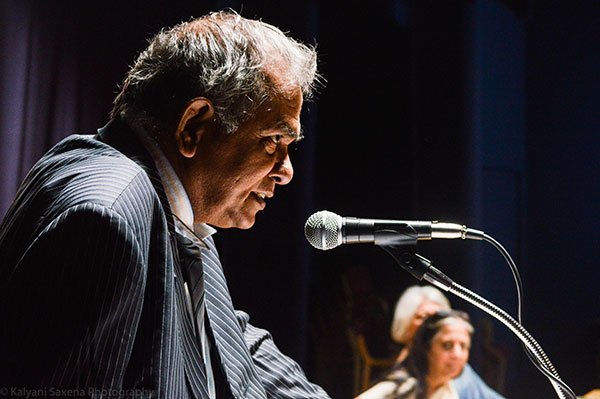M.Sc. Inaugural Lecture at SSE, 2015

M.Sc. Inaugural Lecture at SSE, 2015
On the morning of July 28, 2015, SSE initiated a new batch of M.Sc. students with the annual M.Sc. Inaugural Lecture, conducted by Dr. Ahluwalia and Dr. Kundu on issues pertaining to urbanization in the Indian context.
Dr. Kundu, in his lecture, elucidated the differences between the assumptions made and the ground reality observed in the matter of urbanization and migration trends, based on his studies. He spoke of the recent exclusionary trends in migration patterns, a direct result of lack of opportunities for the unskilled and the poor in the urban scenario. While rapid growth in urbanization may be observed, its true effectiveness in promoting growth and development is contingent on the ability of these towns and cities to serve the needs of people from all economic backgrounds. Given our population size and increasing growth rates of per capita income, the circumstances are promising, but care needs to be taken to ensure the inclusiveness of this developmental process.
Dr. Ahluwalia, in her speech, spoke of the challenges and opportunities India faces in the area of urbanisation and the role the local government has to play in this matter. She focused on the need to strengthen local institutions that have the ability to affect change on the ground level. The essence of her message was that innovative and proactive institutions and socially conscious citizens are critical requirements to make our towns and cities not just hubs of economic growth, but also areas that are socially and environmentally sound, inviting further investment and furthering the cycle of development.
The important lesson that was at the heart of both the lecturers was that a large young population is only an opportunity, not a solution to the question of how we can grow. The only way to effectively use this opportunity and lay the foundation of the Indian success story is to harness the human resources we possess by using the technology available at hand and strengthening institutions.
It was a propitious beginning for the students of the new MSc. batch, as well an excellent learning opportunity for students of the BSc. programme given the manner in which both speakers, using the knowledge base we acquire in the course of our education, highlighted both the challenges and the immense potential for growth India faces in the coming years. The lecture emphasized India’s unique position to make enormous strides in terms of inclusive and concurrent growth in both rural and urban areas in the coming decades.
As the Inaugural Lecture ended, the stage seamlessly shifted to the Common Induction Programme. Dr. Ahluwalia and Dr. Kundu were joined by Dr. Bhooshan Kelkar as the speakers for the day. They were felicitated by Dr. Mujumdar and Dr. Yeravdekar who presented them with a coffee table book, Pune: Queen of the Deccan and a book written by Dr. Mujumdar himself.
The Programme began with the traditional lamp-lighting ceremony which was followed by an address by Professor Lalit Kathpali, Director of SICSR. The event was highlighted by more speeches made by the guest speakers, featuring some truly magnificent anecdotes, examples of the depth of their experiences in their respective fields. Finally, Professor Jyoti Chandirimani, Director of SSE and Dean, Faculty of Humanities and Social Science, SIU, closed the Programme with a vote of thanks.
The Common Induction Programme symbolises the inter-disciplinary spirit adopted by every Symbiosis institution while imparting education. It delineates the relevance of certain issues in every college curriculum, regardless of the course structure or the degree name. Indeed, there could have been no better way to induct a new student into life at Symbiosis, than by presenting perspectives on the challenges of urbanisation, from individuals as varied as researchers and academicians to IT and corporate professionals.


